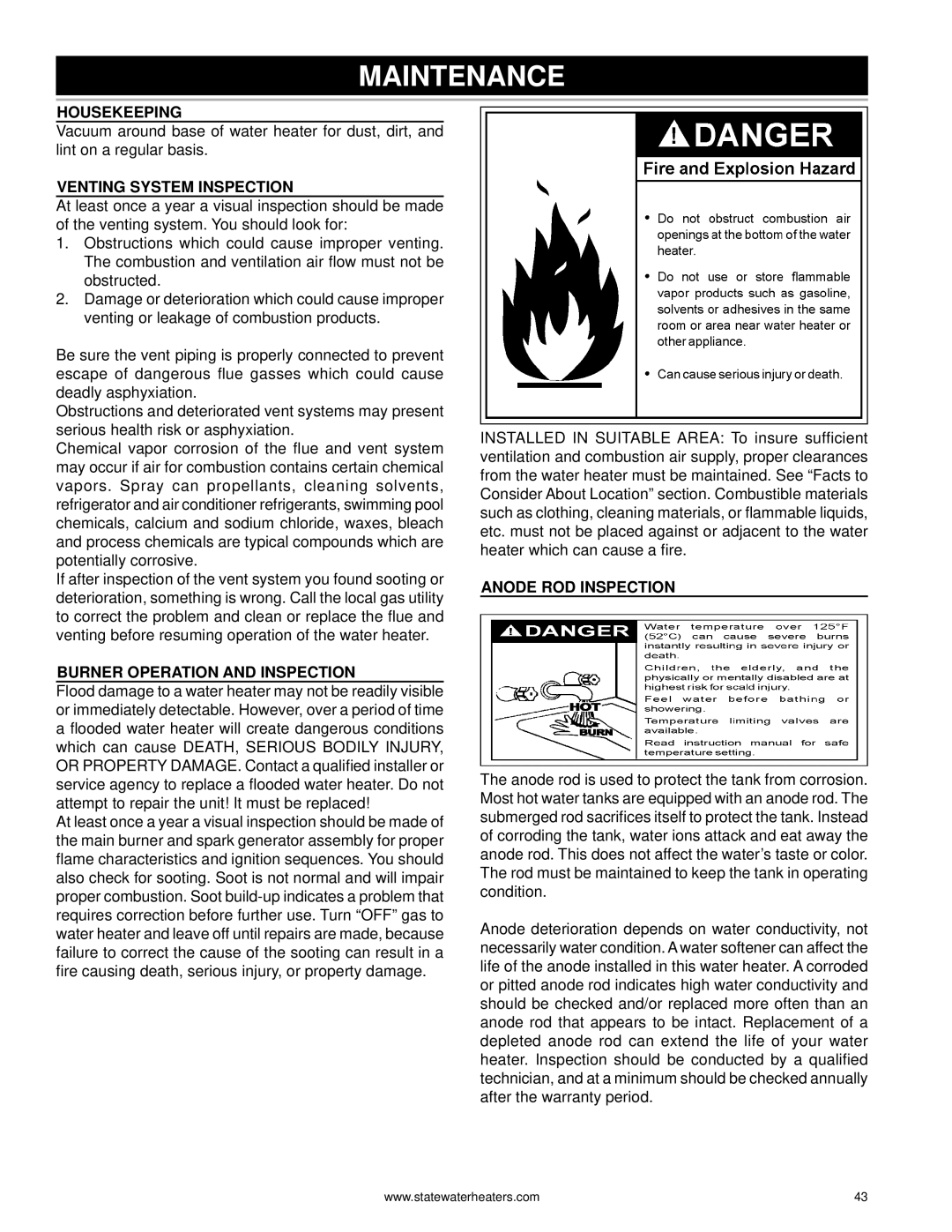0710 316888-002, GPH-90N specifications
The State Industries GPH-90N,0710 316888-002 is a high-quality water heater designed to meet the demands of both residential and commercial applications. Renowned for its durability and efficiency, this model serves as an essential component for facilities requiring reliable hot water supply.One of the standout features of the GPH-90N is its impressive heating capacity, which allows it to deliver hot water quickly and effectively. This model boasts a heating input of 90,000 BTU per hour, making it suitable for large households or commercial establishments. The unit is designed to maintain consistent water temperatures, ensuring that users have access to hot water whenever needed.
The GPH-90N is also equipped with advanced technologies that enhance its operational efficiency. It features a modulating gas burner that adjusts its output to match the flow rate of hot water demanded, thereby optimizing energy use and minimizing operating costs. This technology not only improves performance but also extends the lifespan of the water heater.
Durability is a key characteristic of the State Industries GPH-90N. The unit is crafted from high-quality materials, including a robust stainless steel tank that resists corrosion and ensures long-lasting performance. This corrosion-resistant design is particularly beneficial in areas with hard water, where mineral deposits can be a significant concern. Additionally, the tank is insulated with high-density foam, which helps to maintain heat and reduce standby heat loss.
A crucial aspect of the GPH-90N is its user-friendly features. The control panel is straightforward, allowing users to adjust settings with ease. The water heater is also designed for simple maintenance, ensuring that annual servicing can be carried out with minimal disruption.
Safety is paramount in the design of the GPH-90N. It includes multiple safety features, such as a pressure relief valve and a safety shut-off mechanism, which provide peace of mind for users. This ensures that the unit operates safely under varying conditions.
In conclusion, the State Industries GPH-90N,0710 316888-002 is a powerful and efficient water heater that combines advanced technology with durable construction. Its high heating capacity and user-friendly design make it a reliable choice for both residential and commercial applications, ensuring that hot water is always available when needed.

